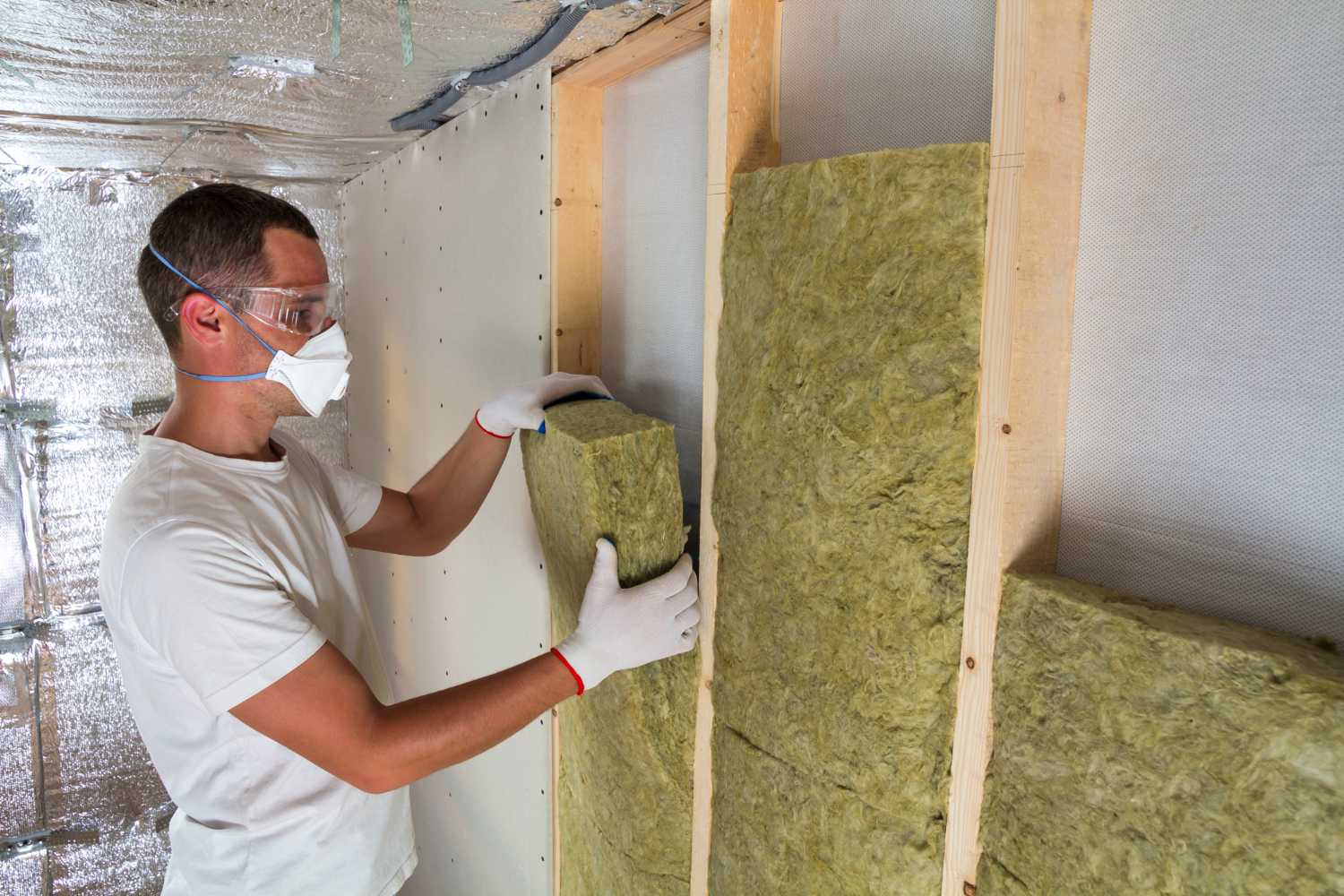Home insulation is crucial for maintaining a comfortable indoor environment. Insulation works by reducing the amount of heat transfer, keeping your home warmer in the winter and cooler in the summer. Understanding how insulation works and its impact on your home’s comfort can help you make better decisions about your insulation needs.
Different types of insulation offer varying levels of effectiveness. Selecting the right insulation for your home can make a significant difference in your comfort levels. In addition, professional assessment and installation ensure that the insulation is placed correctly, maximizing its benefits.
Properly installed insulation can also help with noise reduction, creating a quieter indoor environment. By considering your insulation options and understanding their impact, you can create a more comfortable and energy-efficient home.
Understanding the Basics of Home Insulation
Home insulation acts as a barrier to heat flow, keeping your house warmer in the winter and cooler in the summer. It works by trapping air within its material, which slows down the transfer of heat. There are various types of insulation materials, each designed to suit different parts of your home and specific needs.
Insulation is typically installed in walls, attics, and floors. Common materials include fiberglass, cellulose, and foam. Fiberglass insulation is often used in walls and attics because it’s cost-effective and easy to install. Cellulose insulation, made from recycled paper products, provides excellent coverage and is also used in walls and attics. Foam insulation is highly effective for sealing small gaps and cracks, ensuring that no drafts interrupt your comfort.
When installing insulation, it’s important to understand the concept of R-value, which measures the material’s ability to resist heat flow. Higher R-values provide greater insulation effectiveness. The right R-value varies depending on your climate and the part of the house being insulated.
The Role of Insulation in Temperature Regulation
Insulation plays a crucial role in regulating your home’s temperature by reducing heat flow. During the winter, insulation keeps warm air inside, preventing it from escaping through the walls, roof, or floor. In the summer, it does the opposite, keeping cool air inside and blocking heat from entering. This balance is key to maintaining a comfortable indoor environment year-round.
When your home is well-insulated, your heating and cooling systems don’t have to work as hard to keep the temperatures stable. This leads to more consistent indoor temperatures and reduces the workload on your HVAC systems. As a result, you can enjoy a cozier and more stable living environment without constantly adjusting the thermostat.
Proper insulation also helps to eliminate cold drafts and hot spots within your home. By reducing these temperature variations, you create a more comfortable living space. Our professionals can inspect your insulation to ensure it’s effective and recommend improvements if necessary. By maintaining adequate insulation, you can achieve better temperature regulation, increased comfort, and lower energy costs throughout the year.
Insulation Types and Their Impact on Comfort
Understanding the different types of insulation and their impact on comfort is essential. Each insulation type has its own set of benefits and is suitable for specific areas of the home. Fiberglass insulation is commonly used in attics and walls. It consists of fine glass fibers and is effective at slowing heat transfer. This type of insulation is generally affordable and easy to install.
Cellulose insulation is another option, made from recycled paper products. It’s treated to resist fire, pests, and mold, offering a durable and eco-friendly choice. Cellulose can fill gaps and cavities more effectively than fiberglass, providing better coverage and reducing drafts.
Spray foam insulation is a versatile option offering superior sealing properties. When applied, it expands to fill gaps and cracks, creating an airtight barrier. This type of insulation is highly effective for soundproofing and moisture control. Although it can be more expensive, it often provides a higher R-value per inch, making it a worthwhile investment.
Each type of insulation contributes to indoor comfort in different ways. By selecting the appropriate insulation for your home, you can enhance thermal efficiency, reduce noise, and create a more comfortable living environment. Our technicians recommend evaluating your specific needs before choosing the best insulation type.
The Benefits of Professional Insulation Assessment and Installation
Professional insulation assessment and installation offer several key benefits. Our professionals have the expertise to identify areas in your home that need insulation improvements. We conduct thorough assessments to pinpoint gaps, insufficient coverage, and other issues that may be affecting your comfort and energy efficiency.
One major advantage of professional installation is ensuring the insulation is correctly and evenly applied. Improper installation can lead to gaps, reduced effectiveness, and energy loss. Our technicians use specialized tools and techniques to achieve optimal coverage and performance. This reduces the risk of complications and maximizes insulation benefits.
Professional insulation services also include selecting the right materials and R-values for your specific needs. We take into account factors like climate, home structure, and existing insulation to recommend the best solutions. This ensures your home is well-protected against temperature fluctuations and energy waste.
Investing in professional insulation services leads to better indoor comfort, improved energy efficiency, and a quieter home. With our expertise, we can provide the high-quality installation needed to reap these benefits. Trusting our professionals to handle your insulation needs ensures a job well done and lasting comfort.
Conclusion
Proper home insulation is a key factor in maintaining indoor comfort and energy efficiency. Understanding the basics, such as types of insulation and their impact, helps us make informed decisions. Effective insulation regulates temperature, reduces drafts, and contributes to a more comfortable living environment.
By selecting the right insulation type and ensuring it’s professionally assessed and installed, we can maximize these benefits. At LCS Heating & Cooling, our insulation contractors have the expertise to guide you through the process, ensuring you get the best possible results. Whether it’s improving existing insulation or starting fresh, the quality of your home insulation in Indianapolis, IN, matters. For expert insulation assessment and installation, contact us today. Let us help you create a more comfortable and energy-efficient home.




